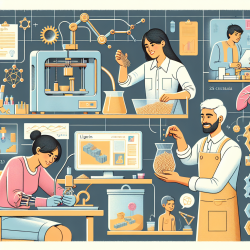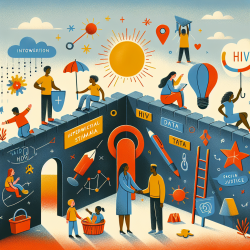Enhancing Food Literacy Education through Effective Partnerships
In the ever-evolving landscape of education, food literacy has emerged as a vital component of K-12 education. The research article titled ‘We are all in this together’: Investigating alignments in intersectoral partnerships dedicated to K-12 food literacy education sheds light on the alignment between classroom teachers and community educators in delivering food literacy education. This blog explores how practitioners can leverage these insights to improve their skills and foster stronger partnerships.
Understanding the Research Findings
The study conducted in British Columbia, Canada, highlights the alignment between classroom teachers and community educators in their goals and practices for food literacy education. Teachers typically frame their programs around the provincial curriculum, while community educators design their programs to meet organizational focuses. Despite these differences, there is a shared mission to enhance food literacy among students.
The research identifies key areas of alignment, such as teaching students where food comes from, basic food preparation skills, and healthy eating habits. However, it also points out opportunities for strengthening partnerships to support teachers in enacting the curriculum and meeting student needs.
Implementing Research Outcomes in Practice
For practitioners looking to improve their skills and enhance food literacy education, consider the following strategies:
- Foster Collaboration: Build strong partnerships with community educators. Collaborate on curriculum planning and share resources to create a cohesive learning experience for students.
- Align Goals: Ensure that the goals of food literacy programs align with both the provincial curriculum and the mission of community organizations. This alignment will enhance the effectiveness of the programs.
- Embrace Flexibility: Be open to adapting the curriculum to incorporate innovative teaching methods and activities that resonate with students’ lived experiences.
- Engage in Professional Development: Attend workshops and conferences to stay informed about the latest trends and best practices in food literacy education.
Encouraging Further Research
The research underscores the importance of continued exploration into effective partnerships for food literacy education. Practitioners are encouraged to engage in further research to identify best practices and innovative approaches that can be integrated into their teaching.
By staying informed and proactive, educators can contribute to the development of a more comprehensive and impactful food literacy curriculum that benefits students and the broader community.
To read the original research paper, please follow this link: ‘We are all in this together’: Investigating alignments in intersectoral partnerships dedicated to K-12 food literacy education.










